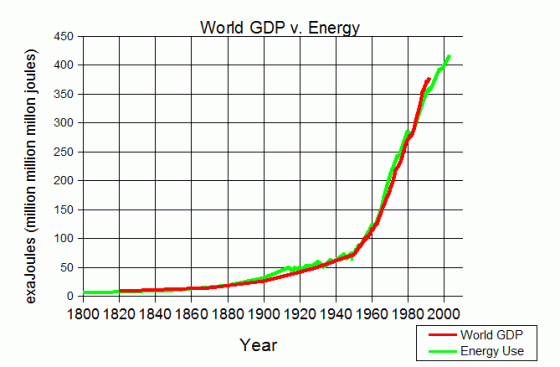This is to prove some ideas I have about the fall of the Conservative Party in Scotland (and thus of the apparent fall in support for market freedom so long as there was no other credible free market party here).

At the start of this Scotland gave the Tories just over 50% of the vote, more than Labour has ever achieved. By comparison Wales was always dodgy ground for them and in fact if you bear in nmind that neither main party hopes to get above 40% of the UK vote now a Tory drop of 4% from 30% to 26% there proportionately counts as a gain - certainly so compared to Labour.
The first Tory drop here is from 50% to just under 40% over the 15 years between 1955 and 1970. That loss is serious. It covers the period of the Conservative councillors, who used to fight under the name Progressives (a title the left now claim so I assume they think it is attractive) largely dropped that name and became Conservative. This was the end of a particularly Scottish, anti-socialist, political institution which didn't suit the vision of Tory "modernisers" of the time and which incidentally suited the Unionist vote - basically the group of, mainly protestant Liberals who at the end of the 19thC or later, split from them over Irish home rule. They were willing to work with the Tories but were never really were comfortable being them. The protestant unionist vote was a group Tory "modernisers" were embarrassed to have supporting them. Even so, while losing 12% of the vote is a bad fall, remember that this was the period when the SNP first won Hamilton and became something more than a fringe and when the Liberals were rising from the edge of non-existence to 7.5% in 1970 so probably half of this drop can be put down to these factors.
The 36 years from late 1974 to 2010 shows a drop from 24% to 17%. Again bad but not a disaster, at least as counts the amount of change. There was a UK wide drop up to 2005 of 4% (though they recovered elsewhere in 2010 - Gordon Brown was not as unpopular here as elsewhere). There was a greater fall here during Thatcher's 2nd and 3rd elections but it was certainly not the "electoral poison" she is claimed to have been. I think some of that can be blamed on their opposition to devolution and some (though the better than UK recovery in 1992 suggests not much) to the coal industry being bigger here.
The real disaster in Scottish Conservative voting was from 1970 to late 1974. A 4 year period that saw them fall from 38% to 24%. 37% of their voters gone. Now that is the definition of electoral disaster.
So what was the cause of this. I am going to say it was Ted Heath's selling out of the fishing industry to join the EU. The EU's common fisheries policy, that the fish belonged to the whole EU not the countries in whose waters they were, was cynically cobbled together hours before negotiations with would be new members started. Heath and his supporters made it absolutely clear that they were willing to sell out our industry. It was, after all, an industry concentrated in far away Scotland, in small towns and villages where the metropolitan media never go. In his calculation of the political balance of power these people, their livelihoods and homes were expendable to achieve Heath's dream of membership of the EEC.
Since fishing was a largely a small business, with captains owning their ships, it was not unionised. These towns and villages, didn't have the support of massive union power (much more massive then than now) and their PR and machines and flying picket thugs. Their fate has barely stirred the surface of the UK political and media class. While media pundits still lament how Thatcher destroyed mining communities (she didn't, economics did) they are simply ignorant of how Heath, quite deliberately and with no economic justification at all, murdered (murder being deliberate planned killing) Scottish fishing communities. But it stirred Scotland into considering that not only were we being ignored by London (we always knew that and being ignored by Westminster is not so bad) but that we were actively expendable and betrayable.
It may be 40 years on and the party may, or may claim to be, offering us the chance to leave, but the Scottish Tories deserve every single lost vote.
But the SNP don't deserve any better. The Tories may have murdered the industry but the self styled "Scottish National Party" have kept on mutilating the body. Nobody, not even the LibDems, are more enthusiastic for us staying in the EU. Nobody, certainly not the present Tories, are as keen to pay our membership of the EU in Scotland's fish. Though it is certain the terms of membership of a their "independent" Scotland would involve far more than what the EU already have from Britain. The SNP know the people of Scotland would never support another such sell out - that is why this most unpatriotic of parties has said it would not allow us a vote on rejoining the EU.
Yet the fishing fields are still there. A fair proportion of the fish are too, despite EU overfishing and they should recover if there were a few years of only the current UK landings taking place. If there were the political will to do so.
What the people of Scotland, and particularly the coastal fishing regions, need is a genuinely patriotic Scottish party (Scottish and British patriotism being entirely compatible) putting forward a Scottish programme which would include quitting the EU and allowing the British fishing industry to be as good as ever. Or better.


At the start of this Scotland gave the Tories just over 50% of the vote, more than Labour has ever achieved. By comparison Wales was always dodgy ground for them and in fact if you bear in nmind that neither main party hopes to get above 40% of the UK vote now a Tory drop of 4% from 30% to 26% there proportionately counts as a gain - certainly so compared to Labour.
The first Tory drop here is from 50% to just under 40% over the 15 years between 1955 and 1970. That loss is serious. It covers the period of the Conservative councillors, who used to fight under the name Progressives (a title the left now claim so I assume they think it is attractive) largely dropped that name and became Conservative. This was the end of a particularly Scottish, anti-socialist, political institution which didn't suit the vision of Tory "modernisers" of the time and which incidentally suited the Unionist vote - basically the group of, mainly protestant Liberals who at the end of the 19thC or later, split from them over Irish home rule. They were willing to work with the Tories but were never really were comfortable being them. The protestant unionist vote was a group Tory "modernisers" were embarrassed to have supporting them. Even so, while losing 12% of the vote is a bad fall, remember that this was the period when the SNP first won Hamilton and became something more than a fringe and when the Liberals were rising from the edge of non-existence to 7.5% in 1970 so probably half of this drop can be put down to these factors.
The 36 years from late 1974 to 2010 shows a drop from 24% to 17%. Again bad but not a disaster, at least as counts the amount of change. There was a UK wide drop up to 2005 of 4% (though they recovered elsewhere in 2010 - Gordon Brown was not as unpopular here as elsewhere). There was a greater fall here during Thatcher's 2nd and 3rd elections but it was certainly not the "electoral poison" she is claimed to have been. I think some of that can be blamed on their opposition to devolution and some (though the better than UK recovery in 1992 suggests not much) to the coal industry being bigger here.
The real disaster in Scottish Conservative voting was from 1970 to late 1974. A 4 year period that saw them fall from 38% to 24%. 37% of their voters gone. Now that is the definition of electoral disaster.
So what was the cause of this. I am going to say it was Ted Heath's selling out of the fishing industry to join the EU. The EU's common fisheries policy, that the fish belonged to the whole EU not the countries in whose waters they were, was cynically cobbled together hours before negotiations with would be new members started. Heath and his supporters made it absolutely clear that they were willing to sell out our industry. It was, after all, an industry concentrated in far away Scotland, in small towns and villages where the metropolitan media never go. In his calculation of the political balance of power these people, their livelihoods and homes were expendable to achieve Heath's dream of membership of the EEC.
Since fishing was a largely a small business, with captains owning their ships, it was not unionised. These towns and villages, didn't have the support of massive union power (much more massive then than now) and their PR and machines and flying picket thugs. Their fate has barely stirred the surface of the UK political and media class. While media pundits still lament how Thatcher destroyed mining communities (she didn't, economics did) they are simply ignorant of how Heath, quite deliberately and with no economic justification at all, murdered (murder being deliberate planned killing) Scottish fishing communities. But it stirred Scotland into considering that not only were we being ignored by London (we always knew that and being ignored by Westminster is not so bad) but that we were actively expendable and betrayable.
It may be 40 years on and the party may, or may claim to be, offering us the chance to leave, but the Scottish Tories deserve every single lost vote.
But the SNP don't deserve any better. The Tories may have murdered the industry but the self styled "Scottish National Party" have kept on mutilating the body. Nobody, not even the LibDems, are more enthusiastic for us staying in the EU. Nobody, certainly not the present Tories, are as keen to pay our membership of the EU in Scotland's fish. Though it is certain the terms of membership of a their "independent" Scotland would involve far more than what the EU already have from Britain. The SNP know the people of Scotland would never support another such sell out - that is why this most unpatriotic of parties has said it would not allow us a vote on rejoining the EU.
Yet the fishing fields are still there. A fair proportion of the fish are too, despite EU overfishing and they should recover if there were a few years of only the current UK landings taking place. If there were the political will to do so.
What the people of Scotland, and particularly the coastal fishing regions, need is a genuinely patriotic Scottish party (Scottish and British patriotism being entirely compatible) putting forward a Scottish programme which would include quitting the EU and allowing the British fishing industry to be as good as ever. Or better.


